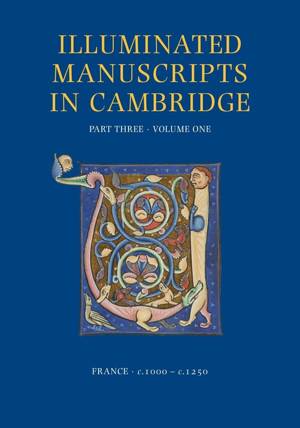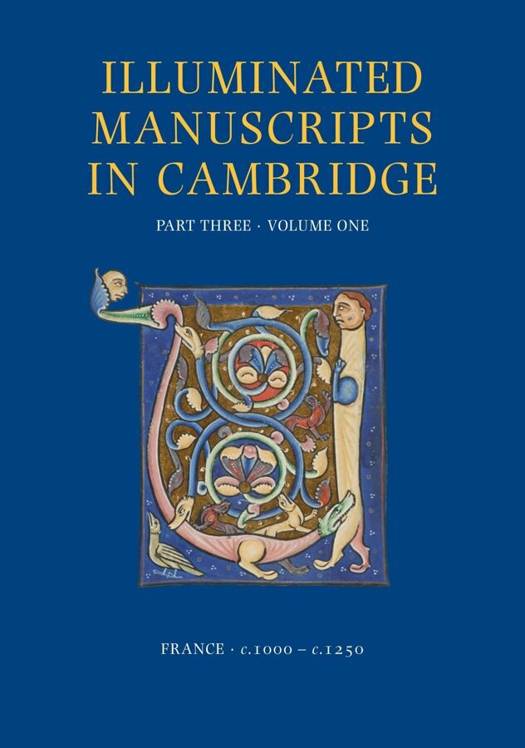
- Retrait gratuit dans votre magasin Club
- 7.000.000 titres dans notre catalogue
- Payer en toute sécurité
- Toujours un magasin près de chez vous
- Retrait gratuit dans votre magasin Club
- 7.000.0000 titres dans notre catalogue
- Payer en toute sécurité
- Toujours un magasin près de chez vous
A Catalogue of Western Book Illumination in the Fitzwilliam Museum and the Cambridge Colleges. Part Three
France: C. 1000-C. 1250
Nigel J Morgan, Stella Panayotova
Livre relié | Anglais
446,45 €
+ 892 points
Description
This volume contains an impressive range of texts, from Horace (Cat. 17) and Ovid (Cat. 61) to the earliest known copy of the Collectio Lanfranci (Cat. 5) and Gerard of Cremona's translations of Rasis' works (Cat. 93). The bulk, however, consists of Bibles of two kinds: imposing glossed books, produced in great numbers in the twelfth-century, and their thirteenth-century successors, the compact pandects. Both categories include some of the most richly illuminated French manuscripts of the period. Among the former are two deluxe sets made for Thomas Becket, the first completed while he was in exile in Pontigny and Sens from 1164 until 1170 (Cat. 27-31), the second edited after his martyrdom by his secretary Herbert of Bosham (Cat. 32-34). The majority of the thirteenth-century Bibles are so-called 'Paris' or 'pocket' Bibles produced from the 1220s onwards, mostly in Paris, and containing the biblical books in a standard order. They are illuminated in a variety of figure and ornamental styles, some comparable to the Bibles moralisees of c.1220-1240 (e.g. Cat. 72), others bearing no resemblance to them (e.g. Cat. 73). There are also notable exceptions of complete Bibles made not in Paris, but in North-Eastern France or Champagne (e.g. Cat. 70), and displaying iconography, figure styles and order of books different from those found in their better-known Parisian contemporaries. We hope that the inclusion of numerous images in full colour representing Bibles illuminated in all of these different styles will inspire and support further research, especially on the ornamental initials which deserve more attention. While this volume contains outstanding examples of illumination, notably the work of the itinerant Simon Master (Cat. 46), it also includes books that are modest in artistic terms, but valuable in other ways. Among them is a glossed Ezekiel which boasts one of the finest Romanesque bindings to survive in Cambridge collections, made almost certainly in Paris c.1160-1170 (Cat. 41). Other aesthetically unassuming volumes form important groups of material, for instance, the books assembled by Master Robert Amiclas during his forty years in France and given or sold by him to the Cistercian Abbey of Buildwas in Shropshire (Cat. 20-26, 37).
Spécifications
Parties prenantes
- Auteur(s) :
- Editeur:
Contenu
- Nombre de pages :
- 296
- Langue:
- Anglais
Caractéristiques
- EAN:
- 9781909400375
- Date de parution :
- 08-09-15
- Format:
- Livre relié
- Format numérique:
- Genaaid
- Dimensions :
- 244 mm x 335 mm
- Poids :
- 1882 g

Les avis
Nous publions uniquement les avis qui respectent les conditions requises. Consultez nos conditions pour les avis.






